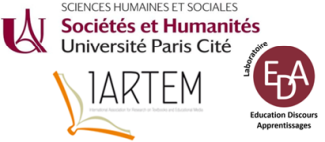Digital learning resources and artificial intelligence (AI) has during the last years been increasingly discussed in a Swedish school context (cf. Klingberg, 2023; Nygren, 2023). The debate is very polarized between those who see huge risks and those who realize opportunities. Researchers have pointed out the importance to create new designs for learning and re-negotiated school subjects, especially in L1; Swedish as a school subject (Graeske, in print; Green & Erixon, 2020).
This paper presents results from a study where L1-teachers discuss how they use AI and ChatGPT in L1-education in upper secondary school. The aim of the study is to investigate what opportunities and challenges teachers see with ChatGPT and how AI influencing their work, uses of textbooks and conceptions of the Swedish subject. In the study, which was conducted during 2023, 10 L1-teachers at three different secondary schools were interviewed. The material is analyzed by thematic content analysis (Braun & Clarke, 2021) and theories about teacher agency (Priestley et al., 2015).
The study shows that digital learning resources and AI effects L1 teachers' agency in many different aspects. Almost all teachers highlight their work to prevent cheating, but several teachers also highlight the possibilities, like quick individual feedback and ChatGPT as inspiration and a “study friend”. Moreover, the teachers stress the importance to focus on critical thinking, compensatory learning via selected textbooks and ethical perspectives like relationship between humans and machines, social and materiality aspects which ultimately can affect subject conceptions.
References
Blikstad-Balas, M., Kornhall, P. & Nilsson, J.M. (2022). Omstart för skolans digitalisering. Natur och kultur.
Braun, V., & Clarke, V. (2021). Conceptual and design thinking for thematic analysis. Qualitative Psychology (Washington, D.C.) https://search.proquest.com/docview/2526313490
Graeske, C. (in print). School, skills and teacher agency. Upper secondary school teachers' use of digital teaching aids. Conference paper. International Association for Research on Textbooks and Education Media, 16th IARTEM Conference, Florence 6–8 april 2022.
Green, B. & Erixon, P-O. (2020). Understanding the (Post-)National L1 Subjects: Three Problematics. In B. Green & P-O Erixon (Eds.), Rethinking L1 in a Global Era. Understanding the (Post-)National L1 Subjects in New and Difficult Times, (pp. 259–282). Cham Springer.
Klingberg, T. (2023). Framtidens digitala lärande. Natur och kultur.
Nygren, T. (2023). AI i skolan: möjligheter och utmaningar i undervisningen. Natur och kultur.
Priestley M, Biesta G, Robinson, S. (2015). Teacher agency. What is it and why does it matter? In Changing Education from the Bottom Up. London: Routledge.

 PDF version
PDF version
